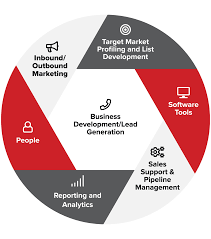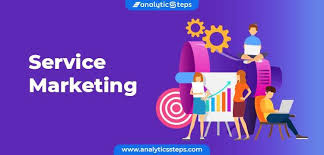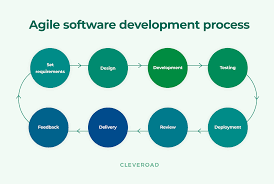Driving Growth Through Software Sales and Development Strategies
The Dynamics of Software Sales and Development
In today’s digital age, software plays a crucial role in almost every aspect of our lives. From business operations to personal productivity, the demand for innovative software solutions is ever-growing. This has led to a thriving industry focused on software sales and development.
Software Sales
Software sales involve the process of marketing and selling software products to businesses and consumers. A successful software sales strategy requires a deep understanding of market trends, customer needs, and effective communication with potential clients.
Key aspects of software sales include:
- Identifying Target Markets: Understanding the specific industries or demographics that would benefit most from the software product.
- Demonstrating Value: Clearly articulating how the software can solve problems or improve efficiency for potential customers.
- Closing Deals: Negotiating pricing, licensing agreements, and providing support to secure sales.
Software Development
Software development is the process of creating, designing, programming, testing, and maintaining software applications. It involves a team of skilled developers who work together to turn ideas into functional products that meet user requirements.
Key stages of software development include:
- Planning: Defining project scope, requirements gathering, and creating a roadmap for development.
- Design: Creating wireframes, user interfaces, and architectural plans for the software application.
- Development: Writing code, implementing features, and ensuring functionality meets specifications.
- Testing: Conducting quality assurance tests to identify bugs or issues that need to be resolved before release.
- Deployment & Maintenance: Releasing the software to users and providing ongoing support, updates, and improvements as needed.
The Intersection of Sales and Development
In the world of software sales and development, collaboration between sales teams and developers is essential for success. Sales teams provide valuable insights into customer needs and preferences while developers create solutions that address those requirements.
This synergy ensures that software products are not only marketable but also meet high standards of functionality and usability. Effective communication between these two departments results in products that resonate with customers and drive business growth.
In conclusion, the relationship between software sales and development is symbiotic. By understanding market demands, delivering innovative solutions, and fostering collaboration between teams, companies can thrive in this dynamic industry where technology continues to shape our future.
7 Essential Tips for Success in Software Sales and Development
- Understand your customers’ needs and pain points.
- Clearly communicate the value proposition of your software.
- Provide excellent customer support and service.
- Stay updated on industry trends and technologies.
- Collaborate with cross-functional teams for successful development.
- Offer flexible pricing options to cater to different customer segments.
- Continuously gather feedback for product improvement.
Understand your customers’ needs and pain points.
To excel in software sales and development, it is crucial to deeply understand your customers’ needs and pain points. By actively listening to their challenges and requirements, you can tailor software solutions that address specific issues and provide valuable benefits. This customer-centric approach not only enhances the effectiveness of your sales strategy but also guides the development process towards creating products that truly resonate with users, ultimately leading to greater satisfaction and success in the market.
Clearly communicate the value proposition of your software.
In the realm of software sales and development, one crucial tip is to always clearly communicate the value proposition of your software. By articulating how your software can address specific pain points, improve efficiency, or enhance user experience, you create a compelling case for potential customers to invest in your product. Effective communication of the unique benefits and features of your software not only attracts interest but also builds trust and credibility with clients. This clarity in conveying the value proposition sets the foundation for successful sales and long-term customer satisfaction in the competitive software market.
Provide excellent customer support and service.
Providing excellent customer support and service is a cornerstone of successful software sales and development. By offering timely assistance, addressing customer queries, and resolving issues promptly, businesses can build trust with their clients and enhance user satisfaction. A strong focus on customer support not only helps retain existing customers but also attracts new ones through positive word-of-mouth referrals. Ultimately, prioritizing exceptional customer service fosters long-term relationships and contributes to the overall success of software products in the market.
Stay updated on industry trends and technologies.
To excel in software sales and development, it is crucial to stay updated on industry trends and technologies. By keeping abreast of the latest advancements, emerging technologies, and shifting market demands, professionals can adapt their strategies and offerings to meet the evolving needs of customers. Continuous learning and staying informed about industry trends not only enhance one’s expertise but also enable them to deliver innovative solutions that resonate with clients, ultimately driving success in the competitive landscape of software sales and development.
Collaborate with cross-functional teams for successful development.
Collaborating with cross-functional teams is a crucial tip for successful software sales and development. By bringing together individuals with diverse expertise, such as sales, development, marketing, and customer support, companies can ensure that software products not only meet technical requirements but also align with market demands and customer needs. This collaborative approach fosters innovation, enhances communication, and ultimately leads to the creation of high-quality software solutions that drive business growth and customer satisfaction.
Offer flexible pricing options to cater to different customer segments.
Offering flexible pricing options is a strategic approach in software sales and development to cater to different customer segments. By providing a range of pricing plans, such as tiered packages or subscription models, businesses can accommodate the diverse needs and budgets of their customers. This flexibility not only enhances customer satisfaction but also expands the reach of the software product to a wider audience. It demonstrates an understanding of market dynamics and allows companies to tailor their offerings to meet specific requirements, ultimately driving sales and fostering long-term relationships with clients.
Continuously gather feedback for product improvement.
Continuously gathering feedback for product improvement is a crucial tip in software sales and development. By actively seeking input from users, businesses can gain valuable insights into how their software is being used and identify areas for enhancement. This feedback loop not only helps in addressing user needs but also allows for iterative improvements that keep the product competitive and relevant in the market. Embracing feedback as a tool for growth fosters a customer-centric approach, leading to higher satisfaction levels and increased success in the ever-evolving landscape of software sales and development.






